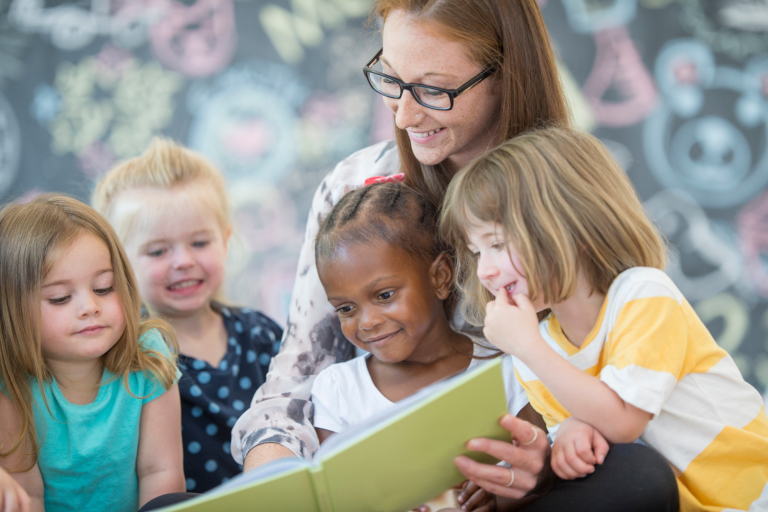Educators and parents know how much children delight in rhyming words. It is a special moment when a child recognises a rhyming word and start to use them. Early attempts will often be nonsense words! It is a lot of fun.
Recognising rhymes is an early phonological (sound) awareness skill. Phonological awareness is the explicit understanding that spoken words consist of smaller parts such as syllables and sounds (Gillon 2004).
Sound awareness is an important skill for children to master before they begin to learn to read when they get to school. Children who have phonological awareness on school entry will have an easier time learning to read than those who don’t. There is an expectation early in the first year of school that children are able to hear and identify at least the first sound in a spoken word.
Rhyming is an early phonological awareness skill. When children begin to recognise rhymes it is because they can hear that the words sound the same on the end. This means that they are starting to hear the smaller parts within the word.
Educators and parents can expose children to rhyme with songs and books. Many children’s books are loaded with fun rhymes. What is your favourite rhyming book? At Sounds good to me, we have too many to choose a favourite!
Not all rhyming activities are equal and some are more difficult than others. Recognising (hearing) rhyme is easier than generating (saying) rhyming words. It is important to build on early skills.
Once children are familiar with listening to a rhyming book, you can help them start to generate rhyming words by pausing in the story and allowing them to complete the rhyme from memory:
‘This is Macca. He’s an… (Alpaca)’.
From Alpacas with Maracas by Matt Cosgrove. Koala Books, Australia.
Rhyming greetings and farewells are another fun way to include rhymes throughout the day:
‘See you later alligator.’
‘Take care little bear.’
Rhyming skills alone are not a strong predictor of later reading success. However, rhyming is an important early skill in which we can help children to build their awareness of single sounds in words. Rhyming activities are fun and engaging and help children to tune into listening to words. Most children are good at rhyming and so can experience lots of success in the activities. If a child can’t rhyme or recognise rhyme by 4 years, it may indicate a need for more focused assessment and intervention. Talk to a speech pathologist if you are concerned.
Are you interested in a new way of supporting training and development for you and your team?
For educators
The Sounds good to me for educators course is designed for use in early childhood services and centres. It provides both excellent professional development (includes a certificate of completion) for your team as well as everything you need to implement a fun, play based program of lessons and activities suitable for your 3-5 year group.
For Family Day Care providers
The Sounds good to me for family day care course has been adapted for use by educators working in the family day care sector. The content has been adjusted and the price point reflects this. We recognise that you are generally working on your own and with smaller groups of children of varying ages. The course provides both excellent professional development (certificate of completion is included) as well as everything you need to implement a fun, play based program of lessons and activities suitable for children aged 3-5 years.
For parents
Would you like to learn simple and effective ways you can help your child be ready for school?
Sounds good to me – for parents short course was created by speech pathologists, covering all aspects of early literacy (language and reading) skills that your child needs before they start school. Each video lesson comes with downloadable games, activities and information.
Does this sound good to you?

